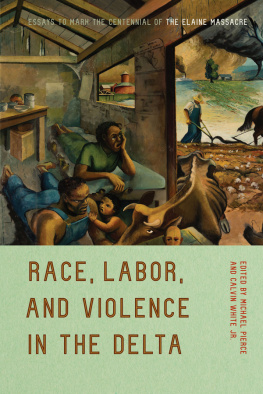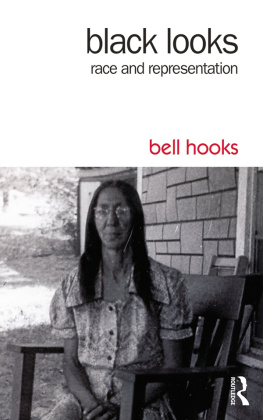Reconsidering Roots
SERIES EDITORS
Claire Potter, Wesleyan University
Renee Romano, Oberlin College
ADVISORY BOARD
Mary Dudziak, University of Southern California
Devin Fergus, Hunter College, City University of New York
David Greenberg, Rutgers University
Shane Hamilton, University of Georgia
Jennifer Mittelstadt, Rutgers University
Stephen Pitti, Yale University
Robert Self, Brown University
Siva Vaidhyanathan, University of Virginia
Judy Wu, Ohio State University
Reconsidering Roots
RACE, POLITICS, AND MEMORY
EDITED BY Erica L. Ball
AND Kellie Carter Jackson
originally appeared in Whats Your Name?: Race, Roots, and Popular Memory, by C. Richard King, in African Americans on Television: Race-ing for Ratings, ed. David J. Leonard and Lisa Guerrero, 114140 (Santa Barbara, Calif.: Praeger, 2013).
2017 by the University of Georgia Press
Athens, Georgia 30602
www.ugapress.org
All rights reserved
Set in 10/13 Kepler Std by Graphic Composition, Inc.
Most University of Georgia Press titles are available from popular e-book vendors.
Printed digitally
Library of Congress Control Number: 2017934778
ISBN: 9780820350837 (hardcover: alk. paper)
ISBN: 9780820350820 (paperback: alk. paper)
ISBN: 9780820350844 (ebook)
For those
who preserve our history
and tell our stories
It can be said that we know the rest of the storyhow it turned out, so to speak, but frankly, I dont think that we do know the rest of the story. It hasnt turned out yet, which is the rage and pain and danger of this country.
James Baldwin, How One Black Man Came to Be an American:
A Review of Roots, New York Times, September 26, 1976
CONTENTS
. |
ERICA L. BALL AND KELLIE CARTER JACKSON
|
CLARE CORBOULD
|
TYLER D. PARRY
|
FRANCESCA MORGAN
|
DELIA MELLIS
|
ELISE CHATELAIN
|
C. RICHARD KING AND DAVID J. LEONARD
|
ROBERT K. CHESTER
|
MARTIN STOLLERY
|
NORVELLA P. CARTER, WARREN CHALKLEN, AND BHEKUYISE ZUNGU
|
DOMINIC MENG-HSUAN YANG
|
FOREWORD
HENRY LOUIS GATES JR.
Roots: The Saga of an America Family, which aired on eight consecutive nights in the winter of 1977 on ABC, created a singular American moment that is unimaginable to those growing up in an era in which we can binge-watch all sorts of black programming, from Scandal and Empire, and Black-ish and How to Get Away with Murder, to The People versus O. J. Simpson, Underground, and even our own three seasons of Finding Your Roots.
Alex Haleys Roots, when it premiered, achieved a feat nobody could ever even have imagined before it aired: the series attracted an astonishing 85 percent of U.S. households, which tuned in at least to parts of the journey unfolding within the long genealogical history of a single black familythe Haleysfrom Kunta Kinte and his harrowing enslavement across the Middle Passage from West Africa to Colonial Virginia before the American Revolution, to the uncertain aftermath of the Civil War and the efforts of Kintes grandson Chicken George to purchase land as a freedman in Tennessee. Roots was epic. Haleys book was a runaway bestseller following its release in 1976 and earned the author a special Pulitzer Prize, while the television series adapted from it garnered a stunning thirty-seven Emmy nominations. Roots wasnt just part of the pop culture conversation in 1977. It was the conversation.
Roots presented readers and viewers with a new kind of black royalty, timed to meet the rising black-is-beautiful generation that had emerged from the tumultuous era of civil rights and Black Power freer of mind and more positive of racial self-image, and with greater opportunities for advancement, than any generation of African Americans before it. At the same time, by way of its vivid characters and plot, drawn from stories passed down within the Haley family and stories imaginatively invented by Haley, Roots jolted the American general public out of their long, repressive slumber over the history of slavery (just as historians such as John W. Blassingame had done in The Slave Community, published just five years before). Roots made it clear in human terms that slavery was not only real, it was violent, it went on over generations and generations, and it left far deeper, far more painful scars than the Gone with the Wind template had let on, but its victims, its objects, ultimately triumphed over this most heinous of human institutions, nevertheless, in the most noble and heroic ways, ways that could be the stuff of great storytelling, whether histories such as Blassingames or novels such as Roots.
Roots achieved something quite complex and paradoxical: on the one hand, it exposed historic and lasting wounds; but at the same time that it revealed scars, it was revealing the coexistence of injury, healing, and transcendence. After all, the slaves did, in the most meaningful sense, not just endure but prevail, since we, Haleys novel attested, the descendants of slaves, were here to testify both about those antecedents and the institution that shaped every aspect of their lives. Telling the story of slavery, as a descendant of slaves, was a defeat for the whole purpose of enslavement: eternal bondage, eternal social death, eternal silence in the republic of letters. Roots also helped to instill the belief in African Americans that there was an unshakable majesty within the black family itself, whose functionality, it must be remembered, had been called into serious question only a decade earlier by The Moynihan Report and its focus on cyclical, impoverished, single-parent households. Here, instead, was the linear story of a continuous family running through the heart of U.S. history, a family that found a way to stay together through the stories they told and retold against the most formidable odds, making their way up from the silencing non-discourses of the slave regime and into the publishing houses of narrative.
Roots power, and its most important legacy, I believe, was in the way it used the narrative arc of a single black family to challenge audiences to face their history while inspiring African Americans in particular to search for personal connections to a past that had long been silenced by that history and, for the first time, to see themselves as part of a longer journey with roots deeper than slavery on this side of the Atlantic, in specific places with specific names on the other side of the Atlantic, in Africa. In accepting this invitation,







